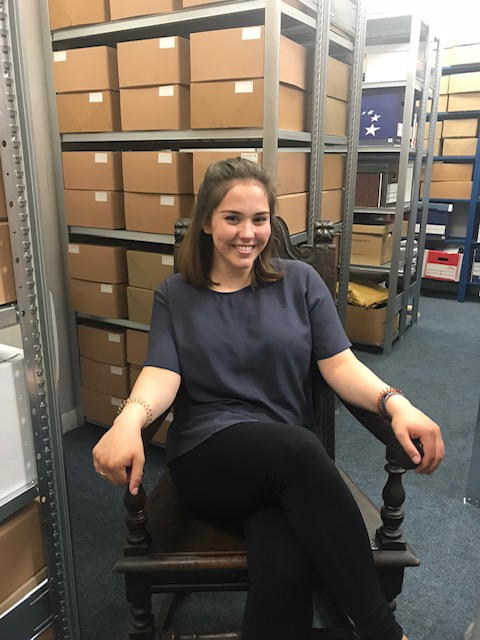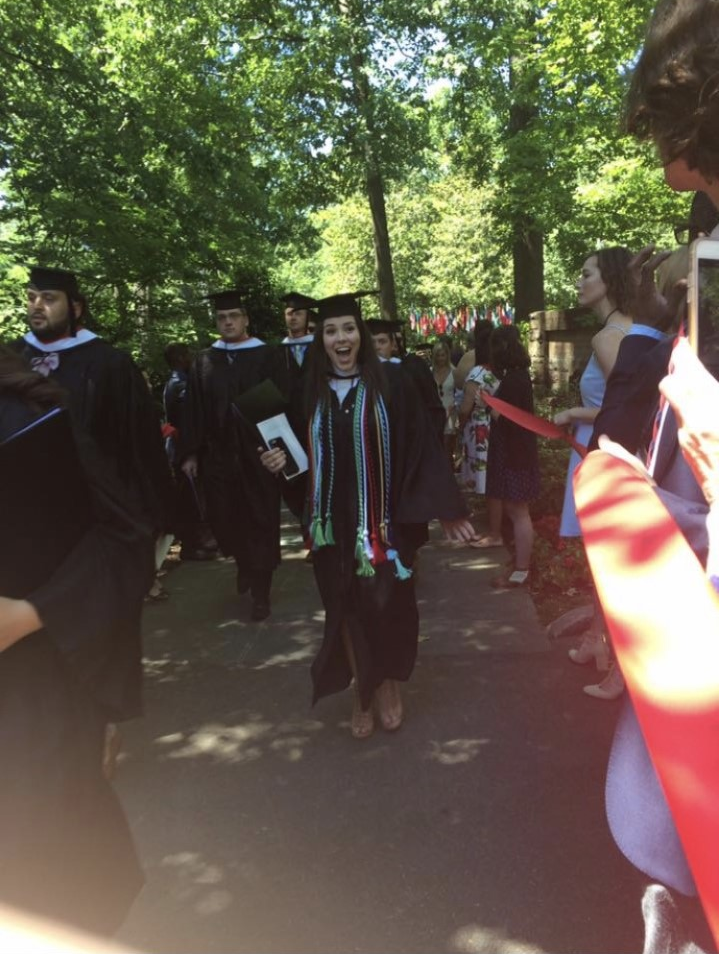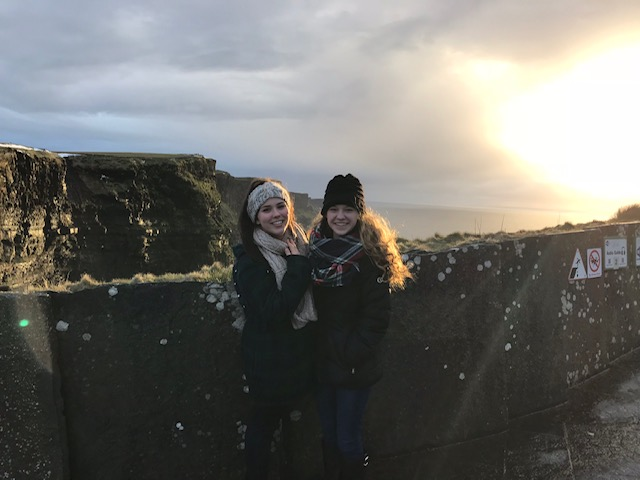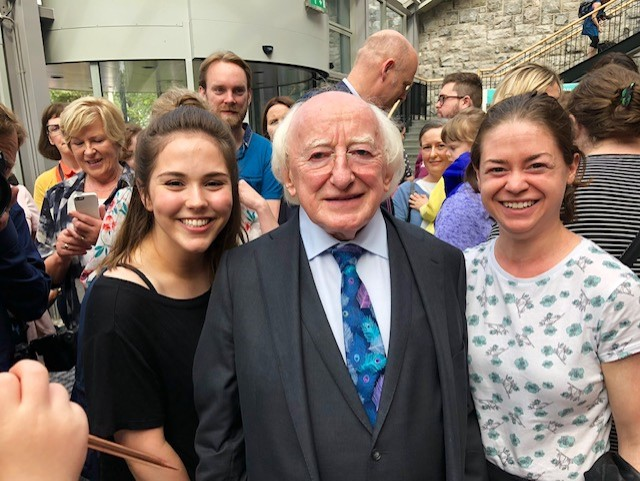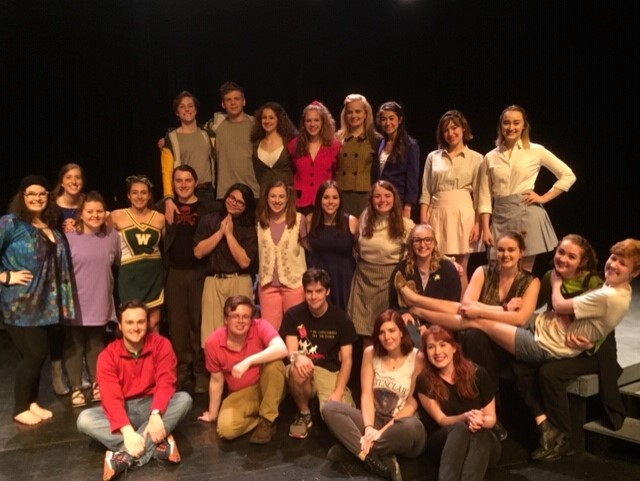AR: What other productions have you worked on, and how has Mamma Mia! differed from those?
OG: I have been working on at least one show every year since I was 9 years old. Yes, I am tired. But I wouldn’t have it any other way!
During my time at Rhodes, I performed in multiple productions that all presented their own rewards and challenges. But the biggest challenge of all was directing and producing Heathers the Musical for my senior project. That year, the McCoy had not included any musicals into their season. There were so many underclassmen who were itching to do a musical, and who had the talent and the passion for it. At the same time, I was looking for a senior project that would fulfill the marriage between Sociology and Theatre that I was looking for, and Heathers was perfect, because of the ways in which it examined gun violence in schools, depression in adolescents, and social forces affecting young people in America. So it just happened. At every turn it should not have worked, but we raised the money, independently put up the show, and sold out our entire run.
Since graduating, I have worked on various productions in the Memphis theatre community. I love working at Theatre Memphis and I love working with Cecelia Wingate, my mentor and one of the best directors in this city. I got my start with her when she came to direct The 25th Annual Putnam County Spelling Bee at Rhodes my junior year. Being able to make that connection with her while I was at school paved the way for me to have a directing career in Memphis. Cecelia is uncompromising in her quest for nuance and detail, and there’s a reason she has won as many local awards as she has. She’s an incredible person to learn from as a young director. Collaborating with her is so instructive because she’ll be the first person to admit if someone else’s idea is better than the one she had, but she’ll just as easily say “no, that’s interesting but it won’t work” or “I like you but I don’t like that idea and here’s why”. She creates a safe environment in which to fail, and I always learn something from it.
AR: You have stayed connected and are an active supporter of Rhodes, which we appreciate! Why do you think it is important to stay connected with your alma mater? What would be some things/ideas/projects that Rhodes College could do to stay connected, perhaps reengage, with our younger alums?
OG: I felt so bad for the poor student who called me during this year’s Annual Fund Phone-a-Thon and started to give me the whole speech about her experience as a Rhodes student and how much the money helps and I just cut her off and said really fast “here’s my credit card number, I can’t talk for long because I’m pulling onto campus right now to visit someone and I have to tell Campus Safety where I’m going”. I figure, I still benefit from the beautiful campus (my beagle, Rua, loves to come visit students who need a study break and want to pet her and walk her around) so I should contribute a little something to it.
But even if I wasn’t in Memphis, I’d still feel that it’s important to me to donate to Rhodes, specifically in the areas that benefited me when I was a student. It is important to me as a donor to the Annual Fund that I’m able to specify where my money goes, what exactly it is that I’m supporting. As a younger alum with less money than, say, older alums who have been in their respective careers longer, I like knowing that the little I have to share is going exactly where I want it to. So if it’s important to you to fund support for the professors who changed your life, you can do that. If a scholarship is the only reason you were able to afford to come to Rhodes, you can make sure your money goes towards the next generation of students who need support to attend college.
I think a good way to keep the younger alums engaged is to understand that as time goes on the generations change. What’s important to this generation’s young alums is irrefutably going to be different from the previous generation’s priorities when they were young alums, and the next generation of young alums will be different too. Making a clear effort to understand what is important to people in our age bracket, right here and now in 2019, what it is we want to support, what we want to change, what we loved about our time at Rhodes, what we wished could have been different, is the best way to make us feel heard and make us feel that our money and our resources are going towards what mattered to us as students and what matters to us now.
AR: After Mamma Mia! finishes, what are your current short-term and long-term plans?
OG: After Mamma Mia!, I’ll be directing the musical Next to Normal at Germantown Community Theatre. This will be my first solo directing gig since Heathers the Musical, and I’m excited to utilize everything I’ve learned over the past few years to create some really incredible theatre. After that, who knows what projects I’ll take on! In the long term, my goal is to have a PhD in Theatre Studies and work for a liberal arts institution like Rhodes, teach theatre classes and mentor future generations of artists and thinkers, while getting to create work in a community like the Memphis theatre community after class hours. That would be a pretty sweet combination of the things I love to do!
